The long British winters can be challenging for our feathered friends. Cold temperatures, shorter daylight hours and scarcer natural food sources mean birds must work hard to get the energy requirements they need. Thankfully, there are things we can do to help garden birds in winter. Let’s take a closer look.
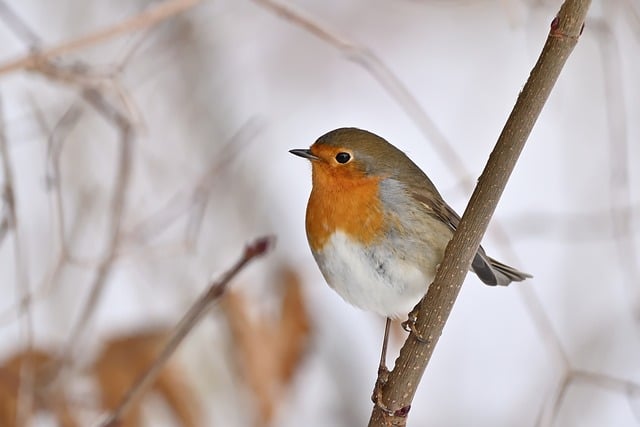
Feeding Garden Birds in Winter
Providing food is one of the most effective ways to support garden birds during winter. This gives them a source of nutrients that they don’t have to expend energy searching for. There are some considerations when feeding garden birds, such as:
Variety of Foods
Offering a variety of foods for garden birds will attract different species. In winter, choose high energy foots with good fat content.
Common options include seeds (such as sunflower seeds and mixed birdseed), nuts (such as peanuts and suet balls), and mealworms. These can be purchased online or at garden centres. For a fun activity, you can also make your own homemade fat balls for birds.
Use Bird Feeders
Bird feeders are a great way to distribute food in your garden. There are various types of bird feeders available, including hanging feeders, ground feeders, and window-mounted feeders.
Feeders also give you a great viewing opportunity to watch different species enjoying your garden. Place them in different locations to accommodate birds with varying feeding preferences.
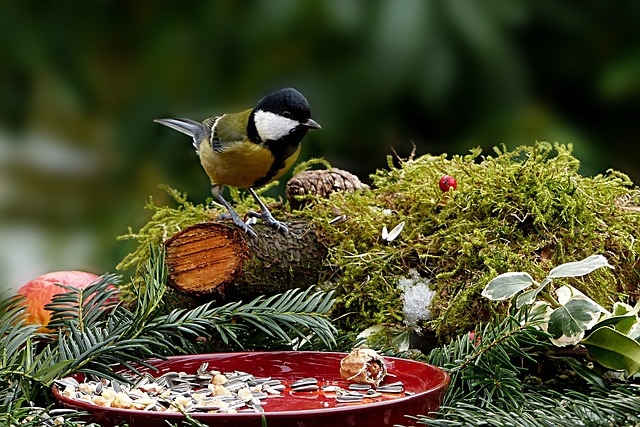
Refill Regularly
Keep feeders stocked with fresh food throughout the winter. Birds rely on these food sources to sustain themselves, so maintaining a consistent supply is crucial.
Hygiene Matters
It is important to keep bird feeders clean, otherwise it can lead to the spread of diseases. Use a mild washing up liquid and warm water to wash feeders, and make sure they are completely dry before refilling them.
Water Provision
Something that is often overlooked is the provision of water. Birds need to drink and bathe to keep their feathers in top condition. In winter, many usual water sources may be frozen.
Consider installing a birdbath and check everyday to make sure the water is clean and useable. Alternatively, a wildlife pond with a shallow area can also provide a water source for birds.
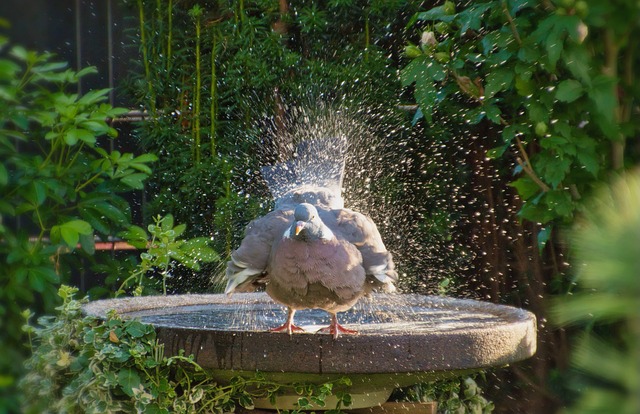
Creating Sheltered Spaces for Garden Birds
With winter comes strong winds and freezing temperatures. Providing sheltered areas in your garden can provide birds with protection from the elements, and there are several ways you can do this.
Dense Shrubs and Trees
Planting dense shrubs and trees is a great way to provide natural shelter for birds. Evergreen species are particularly beneficial as they retain their foliage throughout the winter, offering continuous cover.
Nesting Boxes
Install nest boxes in your garden to provide birds with safe places to roost and shelter from the cold. Position them at least two meters above the ground, facing away from prevailing winds, and ensure they have adequate ventilation.
Choose a few different nest boxes with various sized holes, as some species will only enter if the entrance is a certain size. For example, blue tit nest box holes should be 25mm in diameter, whereas a 32mm hole is best for sparrows.
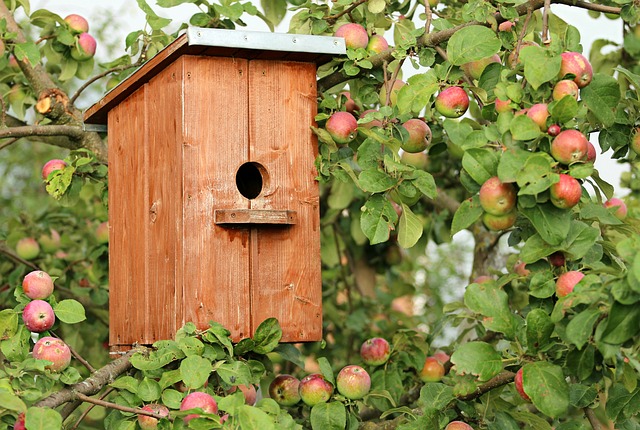
Brush Piles
Create brush piles using fallen branches, twigs, and leaves. These piles offer birds protection from predators and harsh weather conditions, mimicking natural habitats. They will also attract insects, giving garden birds another source of food.
Roosting Boxes
Hang roosting pockets or birdhouses in sheltered areas of your garden. These small, enclosed structures provide birds with sheltered places to roost during cold nights.
What else can I do to help Garden Birds?
As well as feeding and sheltering garden birds, here are some extra tips to help them survive winter.
Avoid Disturbance
Minimise disturbances in your garden, especially during cold spells when birds are conserving energy. Loud noises and sudden movements can startle them and cause unnecessary stress.
Predator Protection
Take measures to protect birds from predators, such as cats and birds of prey. Place feeders and shelters away from potential hiding spots for predators. If you see cats in your garden, chase them off or consider installing deterrents like motion-activated cat deterrents.
Record Bird Sightings
Note down the bird activity you see in your garden or participate in projects like the RSPB’s Big Garden Birdwatch. Not only is this a fun activity, but this data helps researchers monitor bird populations and understand their winter survival strategies.
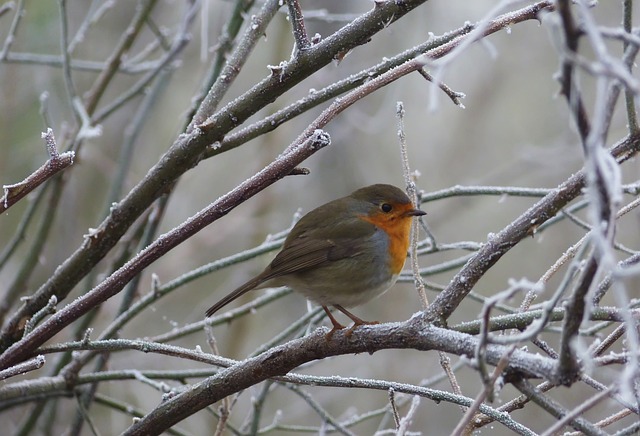
Helping Garden Birds in Winter
While garden birds are resilient, the cold winter months can be a challenging time. With our help, they can thrive through the season. By providing supplementary food, creating sheltered spaces, and making sure your garden is free from predators, you can make a significant difference in their survival rates.
Let’s ensure that our feathered friends have everything they need for the winter months, and enjoy bird watching all year round.
